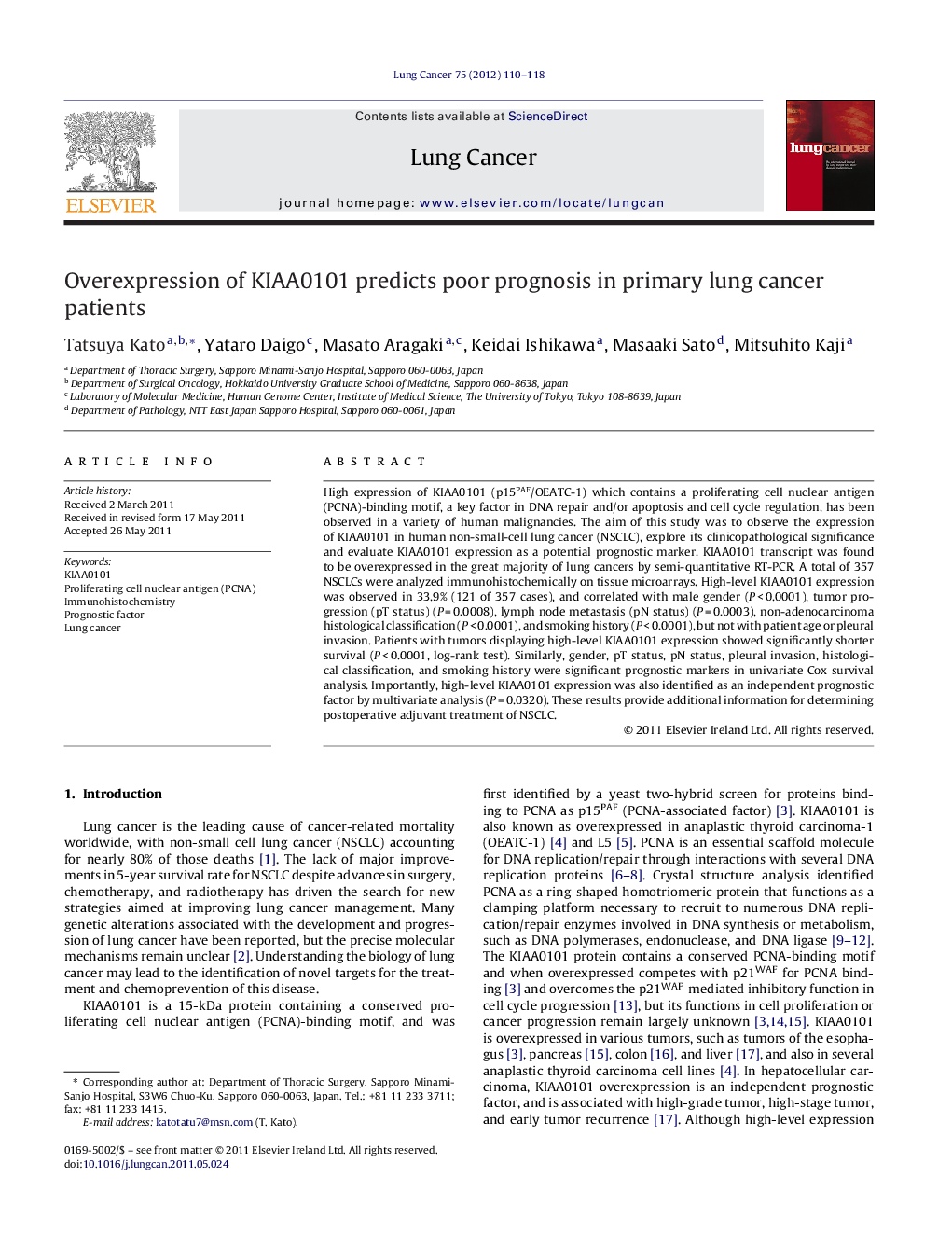| Article ID | Journal | Published Year | Pages | File Type |
|---|---|---|---|---|
| 10911514 | Lung Cancer | 2012 | 9 Pages |
Abstract
High expression of KIAA0101 (p15PAF/OEATC-1) which contains a proliferating cell nuclear antigen (PCNA)-binding motif, a key factor in DNA repair and/or apoptosis and cell cycle regulation, has been observed in a variety of human malignancies. The aim of this study was to observe the expression of KIAA0101 in human non-small-cell lung cancer (NSCLC), explore its clinicopathological significance and evaluate KIAA0101 expression as a potential prognostic marker. KIAA0101 transcript was found to be overexpressed in the great majority of lung cancers by semi-quantitative RT-PCR. A total of 357 NSCLCs were analyzed immunohistochemically on tissue microarrays. High-level KIAA0101 expression was observed in 33.9% (121 of 357 cases), and correlated with male gender (PÂ <Â 0.0001), tumor progression (pT status) (PÂ =Â 0.0008), lymph node metastasis (pN status) (PÂ =Â 0.0003), non-adenocarcinoma histological classification (PÂ <Â 0.0001), and smoking history (PÂ <Â 0.0001), but not with patient age or pleural invasion. Patients with tumors displaying high-level KIAA0101 expression showed significantly shorter survival (PÂ <Â 0.0001, log-rank test). Similarly, gender, pT status, pN status, pleural invasion, histological classification, and smoking history were significant prognostic markers in univariate Cox survival analysis. Importantly, high-level KIAA0101 expression was also identified as an independent prognostic factor by multivariate analysis (PÂ =Â 0.0320). These results provide additional information for determining postoperative adjuvant treatment of NSCLC.
Keywords
Related Topics
Life Sciences
Biochemistry, Genetics and Molecular Biology
Cancer Research
Authors
Tatsuya Kato, Yataro Daigo, Masato Aragaki, Keidai Ishikawa, Masaaki Sato, Mitsuhito Kaji,
